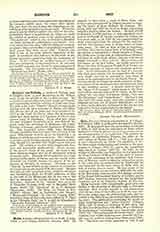

Heinrich von Veldeke, a medieval German poet of knightly rank; b. near Maastricht in the Netherlands about the middle of the twelfth century. He received a learned education, knew Latin and French, and was familiar with the writings of Virgil and Ovid. His chief work is the “Eneide” (Eneit), an epic poem dealing with the love romance of Aeneas and Dido. The greater part of the poem had been completed by 1175 at the court of Cleves, when the manuscript, which had been loaned to a Countess of Cleves, was carried away to Thuringia. There after nine years the poet regained possession of it, and finished his poem under the patronage of Hermann, the Count Palatine of Saxony, afterwards Landgrave of Thuringia. This happened before 1190, when Hermann became landgrave, but later than 1184, the date of the great Whitsuntide festival given by Frederick I at Mainz, at which the poet was present. The “Eneide” is based on an old French romance of unknown authorship, though it is possible that Virgil’s poem was also used. The subject is treated with considerable freedom and thoroughly medievalized. Minne or love is the central theme of the poem. Its form is the short rhyming couplet used by all subsequent writers of courtly epics. Through the introduction of a strict metrical form, purity of rhyme, and the courtly style, Heinrich von Veldeke became the pioneer of the romances of chivalry in Germany. Previous to the “Eneide” he had written at the instance of a Countess of Los an epic on the legend of St. Servatius. Besides the epics he also composed lyrics, which in structure and versification show the French influence, so that in the field of the Minnesong also he was one of the first to introduce the foreign element into German literature. Editions of the “Eneide” were given by L. Ettmuller (Leipzig, 1852) and O. Behaghel (Heilbronn, 1882); the “Servatius” by J. H. Bormans (Maastricht, 1858). The lyrics are found in Ettmuller’s edition, also in Lachmann and Haupt’s “Minnesangs Fruhling”, IX (2nd ed., Leipzig, 1888). Selections from all the works were edited by P. Piper in his “Hofische Epik”, pt. I, 56-281 (in Kurschner’s “Deutsche National Literatur”, IV).
ARTHUR F. J. REMY

